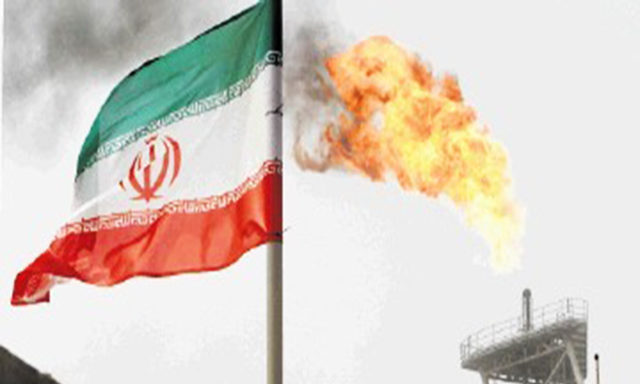
Iran will offer international companies better oil contracts than OPEC-rival Iraq as the Islamic Republic seeks long-term investment to revive its sanctions-hobbled energy industry, a government adviser said.
The fifth-largest Organization of Petroleum Exporting Countries member is discussing limits to its nuclear program to remove Western sanctions against its financial and energy industries.
Iran is developing new hydrocarbon contracts that are “in line” with international practice and law and will offer more flexible terms than those in Iraq, said Mehdi Hosseini, who leads the oil ministry committee on the accords.
“They’ll need to reward partners with incentives for raising production or cutting costs,” said Robin Mills, who worked for Royal Dutch Shell Plc on some of the last western contracts secured in Iran a decade ago. “Iran’s mature and smaller fields pose more risks for companies developing them, so Iran would have to offer better remuneration,” Mills, head of consulting at Manaar Energy Consulting and Project Management in Dubai, said by phone today.
Western sanctions have almost closed Iran’s oil and gas fields to investment over the last decade, limiting the country’s access to technology to boost output and build liquefied natural gas export plants. The measures kept international firms away from the world’s largest gas reserves and fourth-biggest oil deposits, according to data from BP Plc.
“We want oil companies to be involved in joint fields and high risk fields,” Hosseini said at a Tehran press conference yesterday. “We are looking at longer term commitments so that our own companies can learn alongside foreign companies.”
During the same period, Iraq emerged as a global energy investment hub offering oil and gas production rights over the last five years and attracting companies like BP, Shell and Exxon Mobil Corp. along with producers from Russia, China, Africa and other states in Asia.
Iraq’s semi-autonomous Kurdish region pulled companies like Exxon and Total SA to the country’s north with more attractive exploration and production contracts than the federal government had offered for super-giant fields like Rumaila in the south, Mills said. Iraq’s practice of paying companies a fixed margin based on a pre-determined field development plan probably won’t work in Iran where fields will “need someone who can manage them over 30 years,” he said.
“Any new model will have to be win-win for all parties involved,” Hosseini said. “The new contract is our own type. We haven’t given it a name.” The Persian Gulf state will curtail use of existing buy-back contracts, he said.
Several calls for comment to the mobile phones of Iraq’s oil ministry spokesman and the ministry’s head of contracts and licensing in Baghdad went unanswered yesterday.
Iran’s buy-back deals require companies to pay for oil and gas exploration and recover their investment from any production at a pre-arranged rate of return. Hosseini said in November that the country, hampered by sanctions over its nuclear program, was working on more investor-friendly contract terms.
Iran will resume negotiations with world powers over its nuclear activities on Feb. 18 after reaching a preliminary deal in November. The two sides seek a comprehensive accord to ensure Iran’s nuclear program is non-military, as the Tehran government says, and end international sanctions against it.
The nation needs as much as $150 billion in investment over the next five years to develop its oil and gas, and Iranian officials expect most of the money to come from foreign companies, Hosseini said.
The central government of Iraq, which overtook Iran as OPEC’s second-biggest member in 2012, pays investors a fixed fee for any oil they produce. Iraq’s semi-autonomous Kurdish region offers production-sharing agreements, which many foreign companies prefer because they are seen as more lucrative.
Iran will give a preview of its new investor contract to a domestic audience at a two-day conference in Tehran starting Feb. 22, Hosseini said. International representatives are welcome and some European and Asian companies have expressed interest in the event, he said, without identifying any of them.
Hosseini reiterated that Iran plans to introduce the new contract at a conference in London in late June or early July.
Iran’s oil reserves of 157 billion barrels are the world’s fourth largest and it holds the biggest gas reserves, estimated at 1,187 trillion cubic feet, according to BP’s Statistical Review published in June 2013.
Recommended for you
